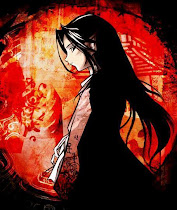

Overview: Book of Lamentations
All Suffering steams from one source
These articles are from Aish.com
I thought that i would share some of my thoughts as i sit on the floor on my tush, which is slowly going numb, as i attempt to attain a level of transformation on this tisha b'av:
There are a few things that come to mind, after haven read the above aritcles. Many of the things that i am about to mention are points that were taught to me at some point and time, which i am not expounding on. I want to apologize that i can not, therefore, cite properly where i heard what from.
- I believe that it is necessary to remind ourselves of the importance of unity. This is an amazing force, one which stood up against the gazera to destroy klall yisroel during the tower of bavel. Instead of destroying us, HaShem scattered us around the globe and gave us different languages to disperse the unity that was used for doing sins. But it was this unity that saved us from complete destruction.
How can we better approach the situation? Why don't we chose ONE name, find out the sickness and a little details, so that we can relate to the person, and really daven for him or her. Really pour out our hearts to their recovery, weather physical or later? We have the koach, we are the children of Avraham, we have the power of dibor, we need to use this power that THINK while we speak.
That leads to number two:
- Lashon hara. I"m afraid that this term has become a often attered, hardly felt, word. Sure, now that it is tisha b'av, we ponder the meanings of our words. But for starters, do we know the halachot of shmirat halashon? Are we trying to constantly review them so that they are clear or common in our minds? How else are we to remember then if we're not constantly bring them to our attention? So what should we do?
It would be in one's best interest to learn this with a chavrusa. This can help to a.) ensure that one is understanding the halacha properly by cross referencing it with the chavursa b.) allow one to help another Jew become proficient in the halachout and c.) increase clarity by unitizing two imaginations over one aspect of shimrat halashon.
- One more thing that came to mind was, the cause and affect of our own actions. The latter aritcle put suffering into a whole new prospective for me. If connected every aspect of pain the the loss of the temple, and the loss of the temple is directly the fault of each and every one of us. This equation struck home and made many questions answerable. To expound on her topic, i want to impress upon ourselves the need for responsibility.
Granted, everyone sins and has set backs on the road upward, it's what is done after such set backs that makes all the difference.
Furthermore, more inline with the article, there would be no suffering if we had the bait hamigdash, for many obvious reasons. a.) would we even have sin? b.) all sad would be turned to happy. This is a wonderful thought, and one which allows us to focus our suffering on the cause and work towards that cause, the rebuilding of the bait hamigdash, for a purpose that's closer to home, our own suffering.






3 comments:
Wow Sarah Rut....powerful, that's all I can say...the words can't come right now...but once again, I thank Hashem for sending me a wonderful roommate, friend and someone I can learn from.
I thank you for your sweet compliments Leah, once again. True friends are those that can learn from one another and look up to eachother respectivly. I'm glad we have that kind of friendship, i look up to you. :D
Awww....one of our teachers said that, I think...
Post a Comment